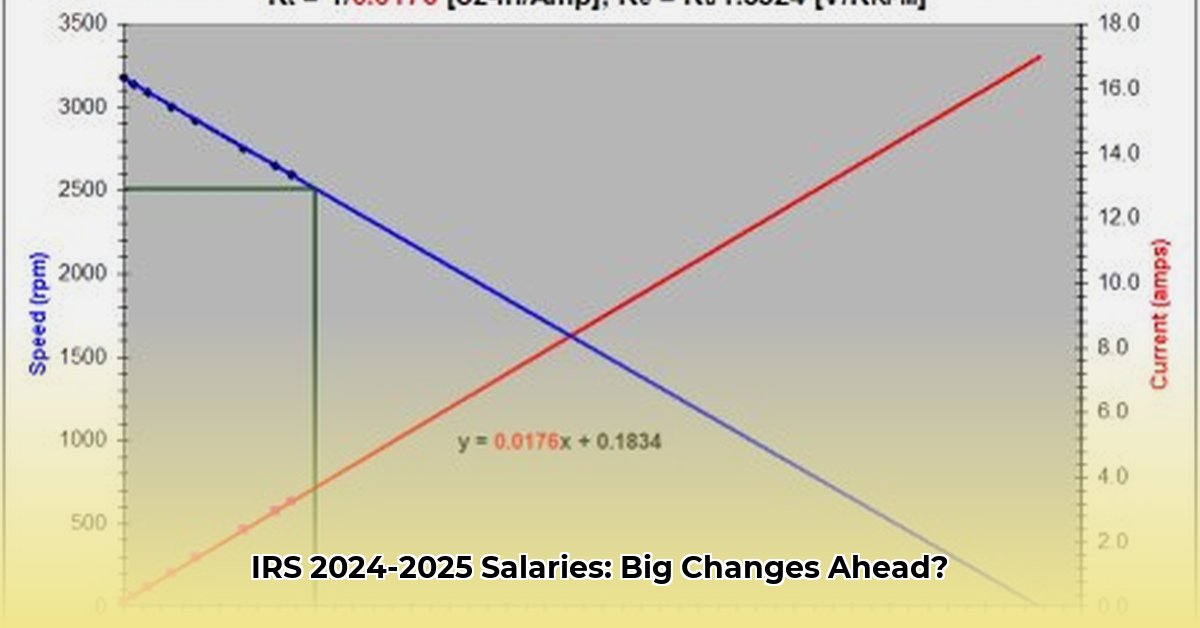
Understanding IRS salaries is crucial for all stakeholders – IRS employees, policymakers, and taxpayers alike. The data reveals insights into agency efficiency, budgetary allocations, and the overall effectiveness of the IRS. This article explores key trends and impacts based on available information, anticipating a clearer picture once the official 2024-2025 data is released.
Decoding IRS Compensation: What the Numbers Mean
Analyzing IRS compensation requires more than just looking at the average salary. A comprehensive understanding necessitates examining individual salary data across all employee levels, from entry-level positions to senior management. This granular review will allow for the identification of trends, such as:
- Salary growth disparities: Are certain departments or employee groups receiving proportionally larger raises than others? Are raises tied to performance, seniority, or other factors?
- Geographic variations: Do salaries vary significantly across different regions of the country, reflecting differences in cost of living or other regional factors?
- Private sector comparisons: How do IRS salaries compare to similar roles in the private sector? Are IRS salaries competitive enough to attract and retain qualified personnel?
These detailed analyses will provide a much richer understanding of the IRS compensation landscape than a simple average salary figure could offer. Isn't understanding the nuances of these compensation patterns vital to improving the agency's overall efficiency and effectiveness?
Unpacking the Data: What Factors Play a Role?
Several intertwined factors influence IRS salary trends. Employee performance is paramount; high-achievers should ideally receive commensurate rewards. However, budget constraints may necessitate trade-offs, limiting salary growth or influencing hiring decisions.
Moreover, the connection between funding increases and salary changes must be meticulously analyzed. Did increased budgetary allocations directly translate into larger raises? Did past performance evaluations and agency priorities play a role? By examining this interplay, a clearer picture emerges of the decision-making process behind the numbers. This level of detail is crucial if we want to understand the full picture and determine if the funds are being utilized effectively to support IRS goals.
Who Feels the Impact of IRS Salary Changes?
The repercussions of IRS salary adjustments extend far beyond the employees receiving the salaries. The direct impacts on IRS employees are obvious, influencing job satisfaction and morale. However, the ripple effects spread to:
- IRS Management: Accurate salary data is crucial for effective budget planning, talent acquisition, and retention strategies.
- Congress and the Treasury: Policymakers rely on this data to assess the appropriateness of agency funding and overall system performance.
- Taxpayers: Ultimately, efficient and effective IRS operations, directly influenced by employee compensation, benefit all taxpayers. A well-compensated workforce can lead to improved service quality and faster processing of tax returns.
Understanding these interconnected impacts is vital for making informed decisions. After all, doesn't effective tax collection depend on a skilled and motivated IRS workforce?
What the Salary Data Might Tell Us (Hypothetical Example)
While the 2024-2025 data is still pending, we can anticipate several potential outcomes based on past trends and current economic conditions. This hypothetical example illustrates possible impacts across different stakeholder groups:
| Stakeholder | Potential Short-Term Impacts (0-1 year) | Potential Long-Term Impacts (3-5 years) |
|---|---|---|
| IRS Employees | Improved income, potentially higher morale and increased productivity. | Improved employee retention, increased job satisfaction. |
| IRS Management | Enhanced budget planning capacity, improved ability to attract talent. | Increased organizational efficiency and effectiveness. |
| US Congress/Treasury | Informed budget decisions, greater transparency and accountability. | Improved overall tax system performance and public trust. |
| Taxpayers | Potential improvements in IRS service quality and efficiency. | Greater confidence in the IRS's ability to manage tax collection. |
Note: This is a hypothetical example based on general trends, not on actual data.
The Human Element: Beyond the Numbers
Fair and competitive compensation isn't simply about numbers; it’s about attracting and retaining a highly skilled workforce. "A well-compensated workforce is essential for ensuring the efficient and effective operation of the IRS," states Dr. Anya Sharma, Professor of Public Administration at Georgetown University. This, in turn, directly benefits taxpayers through improved service and timely processing of tax returns. The human element is therefore integral to the equation.
Remember, the data we're discussing directly impacts the lives of individuals while shaping the future of our tax system. Let's remain engaged and informed as the official data becomes available for a complete analysis.